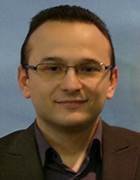
“All of Us” Program Launches Center for Linkage and Acquisition of Data
The University of Colorado Anschutz Medical Campus will use a $30 million award to establish the “All of Us” program’s Center for Linkage and Acquisition of Data.
The National Institutes of Health’s All of Us Research Program awarded $30 million to the University of Colorado Anschutz Medical Campus (CU Anschutz) and its partners to establish the new Center for Linkage and Acquisition of Data (CLAD).
CLAD will help researchers gain insights into the drivers of disease by connecting new types of information with existing All of Us participant data.
The All of Us program seeks to enroll at least 1 million people who reflect the diversity of the United States. By collecting these diverse data, the initiative is designed to spur new medical discoveries and advance precision medicine.
CLAD will enable additional data streams to be combined with information already collected from participants.
“The CLAD approach to data collection will allow us to maximize participants’ data and expand the utility of the All of Us dataset without asking more of our participants,” said Chris Lunt, chief technology officer of the All of Us Research Program, in the press release. “This will enable All of Us data to answer questions researchers don’t yet have the means to investigate.”
Over the 18-month base period of the award, CLAD members will work to acquire additional claims and mortality data, in addition to environmental information from the Centers for Disease Control and Prevention’s Environmental Justice Index.
Currently, the All of Us Researcher Workbench platform contains electronic health records (EHRs), biosamples, genetic information, physical measurements, surveys, wearable device data, alongside other information, such as precision nutrition data, social determinants of health (SDOH), and COVID-19 insights.
The new center was established to supplement these data and fill in potential information gaps, making the information in the Researcher Workbench potentially much more valuable for clinical research.
“The CLAD data linkages will build on the data that participants share to provide a more complete picture of their lived experiences,” said Martin Mendoza, PhD, director of health equity at the All of Us Research Program. “These additional data can play an important role in helping researchers further unravel health disparities and advance health equity.”
CU Anschutz and its partners will also work to overcome technical challenges that arise when attempting to link EHR data from health information networks (HINs) for consenting participants.
These gaps in data availability and completeness can hinder medical research, but All of Us has already begun investigating how to address these issues after issuing a Request for Information (RFI) last year to help guide the integration of data from HINs and health information exchanges (HIEs).








